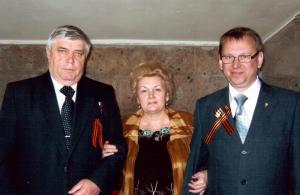Из фильмов на английском посмотрели. Если нужно освежить память, рекомендую прогуляться по ссылкам.
А если память свежа как майская роза, давайте делать упражнения на Passive Voice. Упражнения охватывают большинство форм и конструкций пассивного залога - от простых до продвинутых.
Приступим?
Passive Voice: упражнения
Упражнение 1
Задача этого (простого!) упражнения на Passive Voice - немного вспомнить правила. Совместите фразу в активном залоге со фразой в пассивном залоге.
- I do it
- I did it
- I am doing it
- I was doing it
- I have done it
- I have been doing it
- I had done it
- I will do it
- I will be doing it
- I will have done it
- I am going to do it
- I need to do it
- I can do it
- It has been done
- It can be done
- It is done
- It has been being done
- It needs to be done
- It will be being done
- It is being done
- It is going to be done
- It was being done
- It was done
- It will have been done
- It will be done
- It had been done
Упражнение 2
Цель этого упражнения на Passive Voice - вспомнить разные формы пассивного залога. Перефразируйте предложения из активного в пассивный залог. Время менять не нужно.
Сокращения (can"t, haven"t и другие) можно использовать там, где они есть в основном предложении. Например:
- Nobody has told me about the party - I have not been told about the party
- Nobody"s told me about the party - I haven"t been told about the party
1. Dangerous
driving causes a lot of accidents.
A lot of
accidents are
caused
by dangerous driving.
2. When we
got to the stadium, we found out that they had cancelled the match.
When we got
to the stadium, we found out that the match had
been
cancelled
.
3. They are
building a new road around the city.
A new road
around the city is
being
built
.
4. His boss
has finally promoted him.
He has
finally been
promoted
.
5. How do
people learn languages?
How are
languages learnt;learned
?
6. You need
to feed the cat twice a day.
The cat needs
to
be
fed
twice a day.
7. Nobody told
me about the meeting.
I was
not
told
about the meeting.
8. We can’t
solve the problem.
The problem can"t
be
solved
.
9. They aren’t
going to broadcast Madonna’s concert.
Madonna’s
concert isn"t
going
to
be
broadcast
.
10. You must
lock the doors at the end of the day.
The doors must
be
locked
at the end of the day.
11. Nobody"s
cleaned the windows for several weeks.
The windows haven"t
been
cleaned
for several weeks.
12. The mechanic
is repairing my car at the moment.
My car is
being
repaired
.
13. Different
experts have written thousands of books about time management.
Thousands of
books have
been
written
about time management.
14. My new
camera was faulty so the shop gave me a full refund.
My new
camera was faulty so I was
given
a full refund.
15. The authorities
have to build more playgrounds.
More playgrounds have to be built .
Check
Упражнение 3
А в этом упражнении на Passive Voice нужно выбрать подходящую форму пассивного залога в зависимости от контекста.
1. The last time I was in the city center, the whole area ________. is renovated;is being renovated;was renovated;was being renovated 4 2. According to the plan, the old buildings ________ next month. is going to be knocked down;are going to be knocked down;will be knocked down;are knocked down 2 3. The painting you’re looking at now is quite remarkable. It ________ 5 times! is stolen;was stolen;has been stolen;has been being stolen 3 4. - Did you go to the party? – No, ________. I’m not invited;I wasn’t invited;I wasn’t being invited;I haven’t been invited 2 5. How ________ this word ________? are;is;have;has 2 pronounced;being pronounced;been pronounced;been being pronounced 1 6. It’s a huge international corporation. Thousands of people ________ there. were employed;are employed;are being employed;have been employed 2 7. He ________ three months ago and has been unemployed ever since. had been fired;has been fired;was fired;is fired 3 8. When ________ this picture ________? is;was;has;have 2 being taken;been taken;been being taken;taken 4 9. I had to spend the night in the airport because my flight ________. is delayed;was delayed;has been delayed;had been delayed 4 10. The situation is serious. Something ________ before it’s too late. must be done;can"t be done;will be done;has been done 1 11. Please, go away. I ________ alone. I’m left;I shouldn"t be left;I want to be left;I hate being left 3 12. ________ you ever ________ by a dog? was;were;has;have 4 been bitten;being bitten;been being bitten;bitten 1 13. There’s somebody behind us. I think we ________. are followed;are being followed;were being followed;have been followed 2 14. How many times ________ you ________ not to do this? are;were;have;will 3 be told;been told;being told;been being told 2 15. I don’t like ________ what to do. be told;been told;been being told;being told 4 16. It’s a mystery. It ________. can be explained;has been explained;is explained;can’t be explained 4 17. The TV ________. It’s working again now. is being repaired;is repaired;has been repaired;was repaired 3
Упражнение 4
В этом упражнении перефразируйте предложения, например:
- People believe that coffee increases blood pressure (COFFEE)
- Coffee is believed to increase blood pressure.
1. People say he is 109 years old (HE) He is said to be 109 years old. 2. The police think that the robber is wearing a baseball cap (THE ROBBER) The robber is thought to be wearing a baseball cap. 3. Everybody expects the strike to end soon (THE STRIKE) The strike is expected to end soon. 4. The newspaper reports that two people were injured in the accident last night (TWO PEOPLE) Two people are reported to have been injured in the accident last night. 5. People believe that there is a secret tunnel between Moscow and Saint Petersburg (THERE) There is believed to be a secret tunnel between Moscow and Saint Petersburg. 6. Scientists predict that climate change will affect all parts of the world (CLIMATE CHANGE) Climate change is predicted to affect all parts of the world. 7. They say the company is losing a lot of money (THE COMPANY) The company is said to be losing a lot of money. 8. People believe he is very rich (HE) He is believed to be very rich. 9. Historians believe the Chinese invented paper (THE CHINESE) The Chinese are believed to have invented paper. 10. The police think the thieves entered the house through an open window (THE THIEVES) The thieves are thought to have entered the house through an open window.
Упражнение 5
Ура, картинки!)) Цель этого упражнения на Passive Voice - вспомнить разницу между:
- I"m taking a picture
- I"m having my picture taken











He is He is He is He is He is He is She is She is You need to You need to She is They are
having his car repaired repairing his car cleaning his suit having his suit cleaned having the tree cut down cutting down the tree cutting her hair having her hair cut have your blood pressure checked check your blood pressure having the house painted painting the house
. . . . . . . . . . . .
Check
Сделали упражнения на Passive Voice?
Возникли вопросы? Задайте в комментариях!
Раскройте скобки , употребляя глаголы в Present, Past или Future Simple Passive.
1. Bread (to eat) every day. 2. The letter (to receive) yesterday. 3. Nick (to send) to Moscow next week. 4. I (to ask) at the lesson yesterday. 5. I (to give) a very interesting book at the library last Friday. 6. Many houses (to build) in our town every year. 7. This work (to do) tomorrow. 8. This text (to translate) at the last lesson. 9. These trees (to plant) last autumn. 10. Many interesting games always (to play) at our PT lessons. 11. This bone (to give) to my dog tomorrow. 12. We (to invite) to a concert last Saturday. 13. My question (to answer) yesterday. 14. Hockey (to play) in winter. 15. Mushrooms (to gather) in autumn. 16. Many houses (to burn) during the Great Fire of London. 17. His new book (to finish) next year. 18. Flowers (to sell) in shops and in the streets. 19. St. Petersburg (to found) in 1703.
Passive Voice, обращая внимание на место предлога.
E.g. We often speak about her. - She is often spoken about.
1. We thought about our friend all the time. 2. The doctor will operate on him in a week. 3. The teacher sent for the pupil"s parents. 4. They looked for the newspaper everywhere. 5. Nobody slept in the bed. 6. The neighbour asked for the telegram. 7. Everybody listened to the lecturer with great attention. 8. The senior students laughed at the freshman. 9. The group spoke to the headmistress yesterday. 10. The young mothers looked after their babies with great care. 11. Nobody lived in that old house. 12. They sent for Jim and told him to prepare a report on that subject.
Передайте следующие предложения в Passive Voice.
E.g. Mother waters the flowers in the evening.
The flowers are watered in the evening (by Mother)
1. A marble pavillion protects the house. 2. The boys will paint the roof of the house. 3. Tom Sawyer whitewashed the fence. 4. Her daughters gave her three beautiful dishes as a birthday present. 5. Tom gave Nick a book for his birthday. 6. Our mother tells us stories every evening. 7. Lydia will show you a new book of pictures. 8. A boy showed her the way. 9. They will send us a box of fruit. 10. Five or six small children followed them. 11. In summer the boys often drive the horses to the fields. 12. Ivan Susanin led the Poles into the thickest part of the forest. 13. The waves carried the boat away. 14. We shall do the translation in the evening. 15. They water the flowers regularly. 16. You promised me these books long ago, 17. Bessie"s father gave her a complete set of Walter Scott"s works. 18. Irene"s husband brought her some beautiful shells from the south. 19. The explorers gave the newspaper reporters a long interview. 20. Mr. Wilson will teach you English. 21. The doctor ordered me a month"s rest from studying.
Раскройте скобки , употребляя глаголы в Active или Passive Voice.
1. Nobody (to see) him yesterday. 2. The telegram (to receive) tomorrow. 3. He (to give) me this book next week. 4. The answer to this question can (to find) in the encyclopedia. 5. We (to show) the historical monuments of the capital to the delegation. 6. You can (to find) interesting information about the life in the USA in this book. 7. Budapest (to divide) by the Danube into two parts: Buda and Pest. 8. Yuri Dolgoruki (to found) Moscow in 1147. 9. Moscow University (to found) by Lomonosov. 10. We (to call) Zhukovski the father of Russian aviation.
V1 Передайте следующие предложения в Passive Voice.
1. At twelve o"clock the workers were loading the trucks. 2. By three o"clock the workers had loaded the trucks. 3. We send our daughter to rest in the south every year. 4. They will show this film on TV. 5. They are building a new concert-hall in our street. 6. They have made a number of important experiments in this laboratory. 7. Livingstone explored Central Africa in the 19th century.8. By the middle of autumn we had planted all the trees. 9. They will stage this play at the beginning of next season. 10. They have forgotten the story. 11. Has anybody explained the rules of the game to you? 12. They haven"t brought back my skates.
V 2 Передайте следующие предложения в Passive Voice .
1. I bought potatoes yesterday. 2. We shall bring the books tomorrow. 3. They are repairing the clock now. 4. They sell milk in this shop. 5. I have translated the whole text. 6. They broke the window last week. 7. When I came home, they had eaten the sweets. 8. We shall do the work in the evening. 9. He wrote this book in the 19th century. 10. They were playing tennis from four till five. 11. He stole a lot of money from the shop. 12. By six o"clock they had finished the work.
V3 Передайте следующие предложения в Passive Voice.
1. The students greeted the famous lecturer warmly. 2. They have recently built a huge plant, in the town of N. 3. We must finish the work by tomorrow. 4. When I fell ill, my mother sent for the doctor. 5. They looked for the girl everywhere. 6. They did not listen to the boy. 7. She looks after the patients well. 8. They asked for our address. 9. My father looked through these papers this morning. 10. He will give my brother English lessons. 11. A friend of his has shown me an interesting magazine. 12. His friend told him everything.
V 4 Передайте следующие предложения в Passive Voice .
1. They showed Helen the nearest way to the theatre. 2. He gave his patient some good advice. 3. Mary has told me the news. 4. The people looked at the little boy with interest.5. They examined the paper attentively. 6. We asked him about his holidays. 7. They have already discussed the novel. 8. He did not give me his address. 9. She showed him the way to the metro station. 10. He will introduce me to his friends. 11. They are building a bridge over the river. 12. I haven"t yet translated the article.
V5 Передайте следующие предложения в Passive Voice.
1. We turn on the light when it is dark. 2. The students finished their translation in time. 3. Helen washed the dishes. 4. Betty often took her younger brother for a walk. 5. Mother has made some coffee. 6. Have you ironed your dress yet? 7. Nina mispronounced this word. 8. They have told her the truth. 9. She promised us an interesting entertainment. 10. One uses chalk for writing on the blackboard. 11. I shall finish my work about seven o"clock. 12. Somebody has opened the door.
V6 Передайте следующие предложения в Passive Voice.
1. They did not invite her to the party. 2. I did not leave the window open. 3. They did not turn off the light. 4. I have invited some friends to tea 5. She has given me an English book. 6. Have you written the letter yet? 7. They have told us a lot о S interesting things. 8. The students have written the test-paper without mistakes. 9. The children have scattered about a lot of things. 10. The girl has put all the books into the bookcase. 11. Snow, will cover the fields in winter. 12. They will hand in the homework tomorrow.
TEST
PASSIVE
FORM7
Choose the correct form.
1.America … by Columbus in 1498.
a). is discovered b). was discovered b). discovered
2.The houses … of stone and wood.
a) were built b)are built c). are being built
3.The article … already … .
a). had … been typed b). will be typed c). has … been typed
4.These letters … tomorrow.
a)are mailed b).were mailed c). will be mailed
5.The fish … very well.
a). was cooked b). had been cooked c). will be cooked
6.Moscow University … in 1755.
a). is founded b). was founded c).will be founded
7.Three foreign languages … in our school next year.
a). is taught b). was taught c). will be taught
8.The doctor … an hour ago.
a). send for b). is sent for c).was sent for
9.English … in many countries of the world.
a). is being spoken b). spoke c). is spoken
10.Most of the Earth’s surface(поверхность Земли ) … by water.
a). is covered b) coveres c) was covered
Запомнив когда и какой вспомогательный глагол используется, можно переходить к построению предложений. Очень эффективными считаются упражнения на Passive Voice, которые необходимо перестроить из активного залога. Их часто называют переделки.
Мы прекрасно знаем, что в страдательном залоге используются предлоги by, with, первый из которых показывает, что действие совершает одушевленное подлежащее, а второй - неодушевленное. Чтобы эта информация четко отложилась в памяти, проделайте хотя бы одно упражнение на эту тематику.
Когда вы отработаете все формы, все времена, пройдите комплексный тест Passive Voice , чтобы быть уверенным, что вы все правильно поняли.
Но и здесь есть несколько подводных камней. Например, пассивные конструкции, некоторые глаголы со страдательным значением. Если первые можно выучить наизусть, запомнить со временем, то последние очень часто вызывают затруднение. Необходимо анализировать предложение. Обязательно пройдите несколько упражнений (exercises) по данному вопросу.
Когда все эти этапы будут позади, вы будете уверены, что страдательный залог не просто пройден, а отложен в памяти надолго. Но не забывайте периодически повторять материал. Все со временем забывается, а язык и все его правила особенно. Научитесь жить с английским, проводить с ним время, и тогда у вас все получится.
1. Перепишите предложения из активного залога в пассивный
Nobody has used this room for ages.
We will give you the keys tomorrow.
Someone is interviewing Dr Johnson at the moment.
By the time I arrived, someone had already opened all your letters.
We usually talk briefly about the problems of the family at dinner time.
Ответы:
This room hasn’t been used for ages.
The keys will be given you tomorrow.
Dr Johnson is being interviewed at the moment.
By the time I arrived, all your letters had been already opened.
The problems of the family are usually talked briefly at dinner time.
2 . Выберите правильный вариант
1. This theatre … (build) over 100 years ago.
a. had been built
b. has been built
c. was built
2. Is your car still for sale? - No. It … already (sell).
a. has been sold
b. had been sold
c. was sold
3. Sometimes mistakes … (make).
a. are made
b. are being made.
c. have been made
4. For the past few days I (work) in Jack’s office, as my own … (decorate).
a. have been working/ is being decorated
b. worked/ decorated
c. am worked/ is being decorated.
5. While my friend … (talk) to me, his wallet .. (steal).
a. was being talked/ was being stolen
b. was talking/ was stolen
c. talked/stole
6. Where is your friend Bob? - - I don’t know. He … (not/ seen) resently.
a. hasn’t seen
b. didn’t see
c. hasn’t been seen
7. If someone … (report) you to the police, you … (make) to pay a big fine.
a. reports/ will be made
b. will report/ will make
c. is reported/ will be made
8. Professor … (give) another lecture at the same time next week.
a. will have been given
b. will be given
c. will give
9. Look at the dust in here! It … (look) as if this room (not/clean) … for a month.
a. is looked/ hasn’t cleaned
b. looks/ hasn’t been cleaned
c. has looked/ isn’t cleaned
10. The door … (open) and a young lady … (come in). It should be admitted that the door … (open) by herself.
a. opened/ came in/ was opened
b. was opened/ came in/ was opened
c. opened/ came in/ opened
Ответы :
3. Заполните пропуски предлогами with, by.
The hall was decorated … pink balloons.
The roof of the church will be repaired … local people.
This material has been already published … Cambridge University Press.
The house was built … money that he had borrowed from the bank.
When the the accident happened, the car was brought … police.
Ответы:
with
with
PASSIVE VOICE
Упр. 1. Раскройте скобки, употребляя глаголы в Present, Past или Future Simple Passive.
1. Bread (to eat) every day. 2. The letter (to receive) yesterday. 3. Nick (to send) to Moscow next week. 4. I (to ask) at the lesson yesterday. 5.I (to give) a very interesting book at the library last Friday. 6. Many houses (to build) in our town every year. 7. This work (to do) tomorrow. 8. This text (to translate) at the last lesson. 9. These trees (to plant) last autumn. 10. Many interesting games always (to play) at our PT lessons. 11. This bone (to give) to my dog tomorrow. 12. We (to invite) to a concert last Saturday. 13. My question (to answer) yesterday. 14. Hockey (to play) in winter. 15. Mushrooms (to gather) in autumn. 16. Many houses (to burn) during the Great Fire of London. 17. His new book (to finish) next year. 18. Flowers (to sell) in shops and in the streets. 19. St. Petersburg (to found) in 1703.
Упр. 2. Передайте следующие предложения в
Passive Voice,
обращая внимание на место предлога.
E.g. We often speak about her. - She is often spoken about.
1. We thought about our friend all the time. 2. The doctor will operate on him in a week. 3. The teacher sent for the pupil"s parents. 4. They looked for the newspaper everywhere. 5. Nobody slept in the bed. 6. The neighbour asked for the telegram. 7. Everybody listened to the lecturer with great attention. 8. The senior students laughed at the freshman. 9. The group spoke to the headmistress yesterday. 10. The young mothers looked after their babies with great care. 11. Nobody lived in that old house. 12. They sent for Jim and told him to prepare a report on that subject.
Упр. 3. Раскройте скобки, употребляя глаголы в
Active
или
Passive Voice.
1. Nobody (to see) him yesterday. 2. The telegram (to receive) tomorrow. 3. He (to give) me this book next week. 4. The answer to this question can (to find) in the encyclopedia. 5. We (to show) the historical monuments of the capital to the delegation. 6. You can (to find) interesting information about the life in the USA in this book. 7. Budapest (to divide) into two parts: Buda and Pest. 8. Yuri Dolgoruki (to found) Moscow in 1147. 9. Moscow University (to found) by Lomonosov. 10. We (to call) Zhukovski the father of Russian aviation.
Упр. 4. Передайте следующие предложения в Passive Voice.
1. I bought potatoes yesterday. 2. We shall bring the books tomorrow. 3. They are repairing the clock now. 4. They sell milk in this shop. 5. I have translated the whole text. 6. They broke the window last week. 7. When I came home, they had eaten the sweets. 8. We shall do the work in the evening. 9. He wrote this book in the 19th century. 10. They were playing tennis from four till five. 11. He stole a lot of money from the shop. 12. By six o"clock they had finished the work. 13. At twelve o"clock the workers were loading the trucks. 14. By three o"clock the workers had loaded the trucks. 15. We send our daughter to rest in the south every year. 16. They will show this film on TV. 17. They are building a new concert-hall in our street. 18. They have made a number of important experiments in this laboratory. 19. Livingstone explored Central Africa in the 19th century. 20. By the middle of autumn we had planted all the trees. 21. They will stage this play at the beginning of next season. 22. They have forgotten the story. 23. Has anybody explained the rules of the game to you? 24. They haven"t brought back my skates.
Упр. 5. Раскройте скобки, употребляя глаголы в Passive Voice.
1. I am sure I (to ask) at the lesson tomorrow. 2. They told me that the new student (to speak) much about. 3. The hostess said that one more guest (to expect). 4. The newspaper said that an interesting exhibition (to open) in the Hermitage the next week. 5. This new dictionary (to sell) everywhere now. 6. All the texts (to look) through yesterday and not a single mistake (to find). 7. Two reports on Hemingway"s stories (to make) in our group last month. Both of them were very interesting. 8. He said that Grandmother"s letter (to receive) the day before. 9. Two new engineers just (to introduce) to the head of the department. 10. Don"t worry, everything will be all right: the children (to take) to the theatre by the teacher and they (to bring) back to school in the evening.
Упр. 6. Переведите на английский язык, употребляя глаголы в Passive Voice.
1. Ее отправили в больницу два дня назад. 2. Вчера нас послали в лабораторию. 3. Это сочинение было написано на прошлой неделе. 4. Эту книгу взяли из библиотеки только вчера. 5. Этих трех студентов спросили два дня тому назад. 6. Вас экзаменовали утром? 7. Эта мышь была поймана ночью. 8. Телеграмму послали поздно вечером, и он получит ее только утром. 9. Эту статью должна прочитать вся группа. 10. Это
yпражнение можно написать карандашом. 11. Все ваши сочинения будут возвращены на будущей неделе. 12. Это письмо можно написать на одном листе. 13. На этой фабрике делают очень красивые сумки. 14. Письма туда можно посылать только летом, а телеграммы круглый год. 15. Мою подругу каждый год посылают за границу.
Вы прочитали правило и рассмотрели примеры... Думаете, что страдательный залог у вас уже в кармане? Это будет так, только после того, как вы проделаете несколько десятков упражнений на Passive Voice. Только после того, как вы столкнетесь лицом к лицу со всеми особенностями, со всеми случаями, пройдете сквозь препятствия и прочувствуете их, можно отложить временную систему и страдательный залог в частности. Как легко и быстро преодолеть этот этап?
Выполняя задания различного рода, вы шаг за шагом приближаетесь к заветной цели — к свободному владению. Заглядывая в правило, вы понимаете, что не все времена употребляются в страдательном залоге. Так, Perfect Continuous Passive Tense совсем не существует. Так же, как и Continuous Future Passive. Это уже проще.
Какие упражнения на пассивный залог обязательно необходимо проработать?
Огромная сложность в образовании различных форм. Так, необходимо запомнить множество вспомогательных глаголов, а вот формы сказуемого, если вы внимательно читали правило, для всех одинаковая. Поэтому здесь важно проработать только последовательность.
Запомнив когда и какой вспомогательный глагол используется, можно переходить к построению предложений. Очень эффективными считаются упражнения на Passive Voice, которые необходимо перестроить из активного залога. Их часто называют переделки.
Мы прекрасно знаем, что в страдательном залоге используются предлоги by, with, первый из которых показывает, что действие совершает одушевленное подлежащее, а второй — неодушевленное. Чтобы эта информация четко отложилась в памяти, проделайте хотя бы одно упражнение на эту тематику.
Когда вы отработаете все формы, все времена, пройдите комплексный тест Passive Voice , чтобы быть уверенным, что вы все правильно поняли.
Но и здесь есть несколько подводных камней. Например, пассивные конструкции, некоторые глаголы со страдательным значением. Если первые можно выучить наизусть, запомнить со временем, то последние очень часто вызывают затруднение. Необходимо анализировать предложение. Обязательно пройдите несколько упражнений (exercises) по данному вопросу.
Когда все эти этапы будут позади, вы будете уверены, что страдательный залог не просто пройден, а отложен в памяти надолго. Но не забывайте периодически повторять материал. Все со временем забывается, а язык и все его правила особенно. Научитесь жить с английским, проводить с ним время, и тогда у вас все получится.
1. Перепишите предложения из активного залога в пассивный
- Nobody has used this room for ages.
- We will give you the keys tomorrow.
- Someone is interviewing Dr Johnson at the moment.
- By the time I arrived, someone had already opened all your letters.
- We usually talk briefly about the problems of the family at dinner time.
- This room hasn’t been used for ages.
- The keys will be given you tomorrow.
- Dr Johnson is being interviewed at the moment.
- By the time I arrived, all your letters had been already opened.
- The problems of the family are usually talked briefly at dinner time.
2. Выберите правильный вариант
1. This theatre … (build) over 100 years ago.
a. had been built
b. has been built
2. Is your car still for sale? — No. It … already (sell).
a. has been sold
b. had been sold
3. Sometimes mistakes … (make).
b. are being made.
c. have been made
4. For the past few days I (work) in Jack’s office, as my own … (decorate).
a. have been working/ is being decorated
b. worked/ decorated
c. am worked/ is being decorated.
5. While my friend … (talk) to me, his wallet .. (steal).
a. was being talked/ was being stolen
b. was talking/ was stolen
6. Where is your friend Bob? — — I don’t know. He … (not/ seen) resently.
a. hasn’t seen
c. hasn’t been seen
7. If someone … (report) you to the police, you … (make) to pay a big fine.
a. reports/ will be made
b. will report/ will make
c. is reported/ will be made
8. Professor … (give) another lecture at the same time next week.
a. will have been given
b. will be given
9. Look at the dust in here! It … (look) as if this room (not/clean) … for a month.
a. is looked/ hasn’t cleaned
b. looks/ hasn’t been cleaned
c. has looked/ isn’t cleaned
10. The door … (open) and a young lady … (come in). It should be admitted that the door … (open) by herself.
a. opened/ came in/ was opened
b. was opened/ came in/ was opened
c. opened/ came in/ opened
3. Заполните пропуски предлогами with, by.
- The hall was decorated … pink balloons.
- The roof of the church will be repaired … local people.
- This material has been already published … Cambridge University Press.
- The house was built … money that he had borrowed from the bank.
- When the the accident happened, the car was brought … police.
Привет, друзья! Для многих тема активного и пассивного залога в английском является сложной и непонятной. Кто-то сталкивается с проблемами при образовании пассивной формы, кто-то не умеет переводить такие предложения. Если вы будете знать, как образовать PassiveVoice , научитесь распознавать и понимать такие предложения, эти навыки сделают вашу речь разнообразнее и богаче, а ваши языковые компетенции станут еще на шаг ближе к владению языком на уровне носителя английского.
Что такое пассивный залог?
В английском языке залог указывает на то, выполняет ли подлежащее действие самостоятельно активный / действительный залог, или действие совершается над ним пассивный / страдательный залог.
Таким образом, есть два залога:
- Active Voice — Активный
- Passive Voice — Пассивный
Пассивный залог в английском языке таблица

Активный залог в английском языке таблица

- Active Voice: They usually visit their granny. — Они обычно навещают свою бабулю.
- Passive Voice: Their granny is usually visited. — Их бабулю часто навещают.
- Active Voice: They are visiting their granny now. — Сейчас они навещают свою бабулю.
- Passive Voice: Their granny is being visited now. — Их бабулю сейчас навещают.
- Active Voice: They have just visited their granny — Они только что навестили свою бабулю.
- Passive Voice: Their granny has just been visited . — Их бабулю только что навестили.
Запоминаем, 3 случая использования пассивного залога в английском языке
- Когда мы не знаем, кто совершил действие. Например: Банк ограбили (мы не знаем, кто это сделал).
- Когда нам не важно, кто совершил действие, а важно само это действие. Например: Этот дом построят в следующем году (нам не важно, кто это сделает, нам важно, что он будет построен).
- Когда мы не хотим говорить, кто именно это сделал (если произошло что-то плохое, и мы не хотим никого обвинять). Например: Праздник испорчен (мы не хотим говорить, кто его испортил).
Таблица с временными формами страдательного залога
| Время | Образование | Когда используем | Пример |
|---|---|---|---|
| Present Continuous | am /is /are being ed ) | действие происходит в момент речи | Their plan is being considered
by the members of the committee
.
Их план рассматривается членами комитета. |
| Past Continuous | was /were being + III форма глагола (или правильный глагол с окончанием -ed ) | действие было в процессе в определенный момент в прошлом | While we were having lunch
, the room was being cleaned
.
Пока мы обедали, комнату убирали. |
| Future Continuous | |||
| Past Perfect | had been + III форма глагола (или правильный глагол с окончанием -ed ) | прошедшее действие, предшествующее другому прошедшему | When her parents arrived
, the problem had
already been solved
.
Когда приехали ее родители, проблему уже решили. |
| Future Perfect | will have been + III форма глагола (или правильный глагол с окончанием -ed ) | действие, которое будет завершено до определенного момента в будущем | This document will have been sent
by 6 o’clock
.
Этот документ будет отправлен к шести часам. |
| Present /Past /Future Perfect Continuous | Данной формы в пассивном залоге не существует | ||
Упражнения с ответами
Упражнение 1. Раскройте скобки, употребляя глаголы в Present Simple Passive.
- The postbox (to empty) every day.
- The stamps (to postmark) at the post office.
- The letters (to sort) into the different towns.
- The mail (to load) into the train.
- The mailbags (to unload) after their journey.
- The bags (to take) to the post office.
- The letters (to sort) into the different streets.
- The letters (to deliver).
Упражнение 2. Раскройте скобки, выбирая требующуюся форму глагола.
- At the station they will (meet, be met) by a man from the travel bureau.
- She will (meet, be met) them in the hall upstairs.
- The porter will (bring, be brought) your luggage to your room.
- Your luggage will (bring, be brought) up in the lift.
- You may (leave, be left) your hat and coat in the cloakroom downstairs.
- They can (leave, be left) the key with the clerk downstairs.
- From the station they will (take, be taken) straight to the hotel.
- Tomorrow he will (take, be taken) them to the Russian Museum.
Упражнение 3. Раскройте скобки, употребляя глаголы в Active Voice или Passive Voice.
- Nobody (to see) him yesterday.
- The telegram (to receive) tomorrow.
- He (to give) me this book next week.
- The answer to this question can (to find) in the encyclopedia.
- We (to show) the historical monuments of the capital to the delegation tomorrow.
- You can (to find) interesting information about the life in the USA in this book.
- Budapest (to divide) by the Danube into two parts: Buda and Pest.
- Yuri Dolgoruki (to found) Moscow in 1147.
- Moscow University (to found) by Lomonosov.
- We (to call) Zhukovski the father of Russian aviation.









